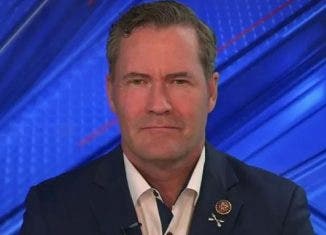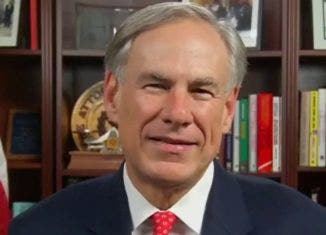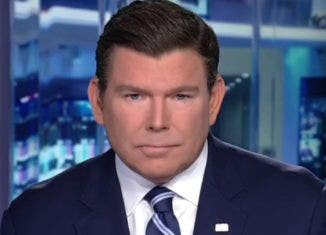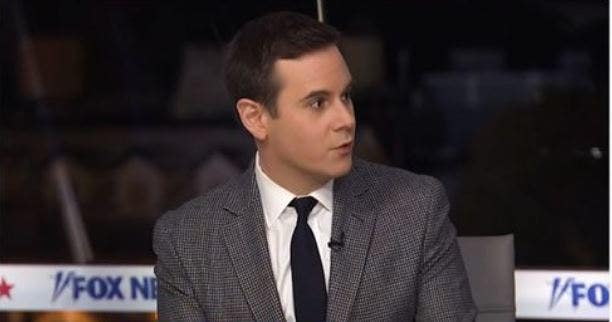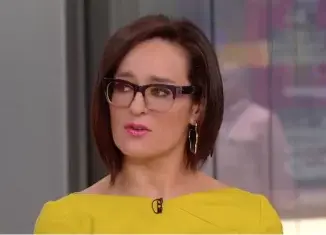Dr. Drew Joins the Guy Benson Show to Talk Adolescent Screen Times and Mask Mandates
Dr. Drew Pinsky, Board Certified Internist, Addiction Medicine Specialist, TV Host & Podcaster, joined the Guy Benson Show to discuss how children play with each other in the modern era. The two encourage kids to participate in free play like previous generations did in order to help with generational anxiety. Drew also addresses the new mask mandates and how most masks aren’t effective.
Listen to the full interview below:
Full Transcript:
Guy Benson: I am very excited to welcome back to this program, Dr. Drew Pinsky. He’s a board certified internist. He’s an addiction medicine specialist. He’s a TV host, podcaster. Check out his streaming show, Ask Dr. Drew. That’s Dr.Drew.TV. You can check it out there. Also, he’s got a very successful, wildly popular family of podcasts at Dr. Drew. drdrew.com. Doctor, it’s great to have you here. I want to start with this story is a New York Times op ed by two psychologists and they’re making the argument about kids these days. Why are they so anxious? I know you and I have talked about some of those anxieties in the past, and you deal with this all the time. They’re what they call a simple solution. I’m not sure anything is that simple, but they’re saying there’s too much sort of helicopter parenting, too much hovering, too much micromanagement of kids. They should just be allowed to go and play, like go out, play with friends and come back later. That’s what I did when I was growing up. Get on your bike and ride around the neighborhood and go do be creative, figure it out. But kids are hyper managed now and they’re not really allowed to do things like that. Some of that I get. Parents are nervous and parents want to keep their kids safe, but are they also maybe doing some harm in the process? How do you view this?
Dr. Drew: Oh, no, no doubt. It’s an intuition that literally everyone has and it’s borne out in the literature, and there’s no doubt that this is the case. So let’s remember that if you sit your kid out to the park, that child will be sort of backed by police and you will be seen by social services because there is a crazy restrictions on kids ability to be autonomous in particularly in urban centers. Be that as it may. Self-sufficiency, self-efficacy, failure. These are necessary elements to be able to learn how to flexibly navigate in the world. And the sooner you start that, the more efficacious the child will be. The more confident the child will be, the more grit they can develop. They can learn to overcome adversity and fail and get back up and do it again. And we I think every parent has an intuition about that, and yet we don’t do it. That is the problem. That really is, of course, not the kid that you open with kids these days, which, you know, sounded like a song from Bye Bye Birdie circa 1960. Right. But I like musicals to just, you know, and and and and yeah, it’s been around that’s been a rallying cry for quite some time. But today this is a very specific thing and let’s hope this aircraft carrier turns and parents start doing the difficult work of not intervening.
Guy Benson: Yeah, I think that’s exactly it. And in some ways it’s like the more things change, the more they stay the same. But this has been a real, at least for now, temporary sea change in the way that parents do or do not allow their kids to go be kids. Like I didn’t have a perfect childhood. My parents weren’t perfect. No parent is. But and they cared about me, of course, and my safety. They were extremely concerned about that. But back then I didn’t have a cell phone. Right. People didn’t really have cell phones. Kids certainly didn’t. And on a Saturday or after school, like, you would go and hang out and play with friends and go from house to house and hang out and go into the woods. And we would like shoot little fake action movies and stuff. And if something went wrong, it just figure it out. You couldn’t quickly call your parent. And I get like, well, you know, are there dangerous people out there? Should kids be by themselves? First of all, I wasn’t usually by myself. I was with other kids. I just wonder, is there a way for parents to kind of allow more of that, to your point, not getting in trouble with the state, but also letting go in a safe and healthy way to let some of that free range being kids thing make a comeback.
Dr. Drew: I would say two things probably. One is that they they have to be prepared to buy a ticket book for sale. They have to be able to hurt themselves, that you have to sit by and your job is not. We’re in this deep rescuing mode right now where everybody cares. I care so much about to rescue the people. How do you rescue them? By leaving homeless people on the street. That’s a rescue. By giving heroin addicts Heroin. That’s a rescue. That’s you. That’s for you, not for the person that what they need. And it’s the same thing for child rearing. They don’t need rescue because when you have somebody dependent on rescue, they forever need rescuing and they do not develop their autonomy. The other thing is the present economy may give us something positive out of this. Perhaps it will start to put families back in an extended family home. And one of the issues has been, of course, you know, everybody out of work. And so it makes it difficult. You know, you were all I got was I can’t I can’t I get if somebody wants the kid because I’m not at work. But if grandma was at home, Grandma was at home, cousins at home. Maybe the extended family in home environment will help. Mitigate some of this.
Guy Benson: I was also reflecting on this, Dr. Drew, because and I made the point about not having a cell phone when I was growing up. I kind of can imagine a lot of parents, well-meaning parents, like, okay, my kid is in the house, she’s down in the basement, she’s in a room. So they’re safe. They’re not out on the street where it’s very dangerous with their friends because who knows lurking out there. But they’re in the house under my roof, so therefore they are safe. But they’re on their devices, they’re on the Internet, they’re on social media, I would say. And you can agree or disagree, I would say those kids, if they’re not being supervised in a serious way online, they are in more danger in their own house, on the Internet than they are out and about with their friends. Is that overstating it?
Dr. Drew: No, no, no. Well, no, I again, I can’t measure it, you know, with quantitatively. It is an intuition, again, that I think is accurate. I have friends that specialize in adolescent psychology and screens, and they are just constantly overwhelmed by the direction that data is going. The affected screens, those that have kids limit their kids to 1 to 2 hours a day in a highly structured manner. And the feedback and the pushback always is, well, but the other kids are going to do this well, right? It’s going to be hard. How about the parents get together and agree they’re all going to do this healthy thing and limit their kids access, particularly during the school day, particularly during the time when they should be doing their homework. How about we do that as a as a as a parenting group? I suggest you raise that at your schools and see if you can find a cohort that’s willing to do that with you.
Guy Benson: I mean, I’m a big advocate of just having cell phones totally banned from schools, smartphones, 100% banned from schools. And parents say, well, what if there’s an emergency at the school? What if there is a shooting? I want my kid to have a phone. I just think we have to do risk benefit analysis here. And I think the benefit of having kids not on screens at school far outweighs the. Remote possibility of something going wrong. And guess what? When something went wrong, when you and I were growing up in different generations, we didn’t have cell phones to call our parents. You figured it out. You went to the office. If it was serious enough and you called from there, like, I think that that is maybe a baby step, but a constructive one.
Dr. Drew: Yeah. Oh, there’s no doubt about that. And I. Yeah, I couldn’t agree more. We’re going to see eye to eye all the way down the line. And the reality is that many, many parents agree to. But let’s remind ourselves, we live in this time of hysterics, hysterical and are unable to make risk award analyzes of any type. And they concede their authority to these centralized decision makers who make terrible decisions. Have we not learned that now?
Guy Benson: And that’s an illusion I think, to covet. I want to get to that in just a second. But before we move off of this topic, generally, Doctor, I just want to ask you, because my husband and I are about to become parents in the next couple of months and we’re very excited about that. I’m already thinking ahead four or five, six years down the line and worrying a little bit about the screens issue and the social media issue and how to negotiate that in a way that’s productive and that doesn’t make the kid a pariah, but also doesn’t expose him to way too much screen time in all the stuff that is lurking out there, frankly, that can be really damaging. Are there some best practices on and you mentioned, you know, limiting to 1 to 2 hours a day, closely watched. That’s one idea that you’ve mentioned. Are there other things that you would think that parents and expectant parents should at least think about on this front?
Dr. Drew: Yeah. I mean, think about whether you’re going to have a screen at all. Then think about how you’re going to limit access to that screen and that you both agree on every aspect of that because we’ll be fighting a difficult uphill battle and then look for by then you’ll there’ll be a lot of good electronic sort of guardrails. You want to put up the guardrails? I have a friend that runs a website called Deka Kids, and she does a pretty good job of putting up and informing all that stuff. So I just I look to the people that are thinking about this all the time and follow their lead.
Guy Benson: Do you think that it’s appropriate for parents to have the passwords for all the social media stuff for their kids up to like what age 18 said.
Dr. Drew: You’re going to fight a difficult battle at 15? Totally. You know, look, here’s the deal. It’s it’s your phone. It’s your phone. You pay the bills and you’re the parent. True. You know, that’s it. These are things you don’t get into as a lot of things people get a discussion about that are not open for discussion. They just are the way it is. And later on, they may want some space for some private thoughts or it’s a private communication. Okay. You can figure out what that is exactly. But otherwise, your phone.
Guy Benson: Dr. Drew, a moment ago, you, I think, made a reference to code. That’s what I inferred at least about the absolutely garbage cost benefit analysis that so many people in positions of authority and power have exhibited in recent years, especially during the pandemic. You were one of the early voices saying, whoa, no, on some of this stuff and you took some heat for it. I think many people would argue that you’ve been absolutely vindicated. And you and I talked about it on the air a couple different times and privately as well. Here we are again. This is a seasonal virus this season. Yes. Cases are up, hospitalizations are up. It’s nowhere near what it even was last year, for example. And yet the restrictions, the mandates, the requirements in some places, especially schools and colleges, they’re coming back. It is it is like a nightmare, a recurring nightmare in some respects. Talk through what you’re seeing happening now and what’s your response to it?
Dr. Drew: Well, look, we all see what’s happening, and it is really important to resist. We know for sure that mask mandates don’t work. If you would like to protect yourself, you can put on an improperly fitted and I mean spit it. You can be no air escaping from that N95 style mask and you can put that on and work perfectly. No masking between bites. As soon as you do that, the entirety of the efficacy of the mask is lost. So if you would like to do that, please do. I mean, I would encourage you, if you’re nervous or you have risk factors, something doing that mask yourself. Don’t be concerned about anybody else. Much like when I go in a room with a patient with infectious disease, I don’t mask the patient eye mask myself. And you’ll you will you will add a little benefit to yourself at the point at which we ask other people to do it, it completely falls apart. People wear it below their nose before surgical mask. They’re worthless. This is an aerosolized virus. That whole six feet saved lives think was an arbitrary construct. It does not exist. There is no evidence that it’s useful because it’s an aerosolized virus. It goes 30 to 60 feet. Six feet does not save lives. It does nothing. They literally pulled the number out of the air because they felt they could get people to comply to it. And they had to do something so-called quote, had to do something, which is something I used to hear from my medical residents. I would excoriate them when you do something interventional on a patient because they had to do something, you’re going to harm the patient and you don’t know why you’ve done it. You’ve got no risk reward thoughts and you are much more likely to harm than benefit. Doing nothing is often much better. So here we are. We must resist. It is a it is unconscionable that our civil liberties should be imposed upon in a non-emergency situation. Let’s remember, no more emergency, no more pandemic. None of that exists. And there still feel that their privilege to impose your civil liberties of speech and movement and facial coverings, that is not the country I thought I was living in. And it is insane.
Guy Benson: Yeah, the do something ism can be so pernicious and toxic. And very quickly, before we let you go, Doctor, why is it that it seems like schools, universities, the ivory tower, are kind of the last vestiges of some of this? Is it just a control thing? Is it a neurosis thing? What’s going on?
Dr. Drew: It’s a hysteria. It’s a neurosis. It is the nonscientific sort of humanities component of these organizations that have taken hold. And the actual scientists are afraid to say anything because, of course, they will get crushed for being unwilling to wear the talisman on their face to really acknowledge tribal membership. If you we’re still in this weird Trump derangement where if you take issue with anything, if you say, Hey, raise your hand, and I’m not sure that mask is really going to work on a mandated level, you’re you’re Trump, you’re taught you’re a Nazi. That is. And that’s the hysteria. That’s the insanity. You and let’s remind ourselves, cognitive dissonance, cognitive distortions is alive and well. And people throughout history, in the name of good, have done extraordinarily bad things. And we’re seeing tons of that these days.
Guy Benson: Well, we try to do sanity here on this show, and we appreciate your sane comments as well. Dr. Drew Pinsky on The Guy Benson Show. We so appreciate it, sir. Have a great weekend.
Dr. Drew: Thank you, sir.


